Start Licensing’s Ian Downes highlights an example of more cooperation between retail brands this week.
As noted over recent weeks in my Lookouts, I think the licensing industry is facing a challenging period retail wise. News of unlocking lockdown has been interspersed with news of more closures or challenges within the retail sector.
For example, last week GAP announced that it would be closing its shops in the UK.
Given the close relationship between licensing and retail, we all have to be mindful of developments and setbacks in the sector. I think we will see some further shifting in the retail sands and a different landscape will emerge.
Licensing certainly has a role to play and in fact I think an enhanced one. I think it is a good moment for Licensing PLC to pitch itself as a positive force in retail which offers sales potential and opportunities to retailers. One dynamic I think we will see is traditional styles of retailing with buying decisions and policies changing.
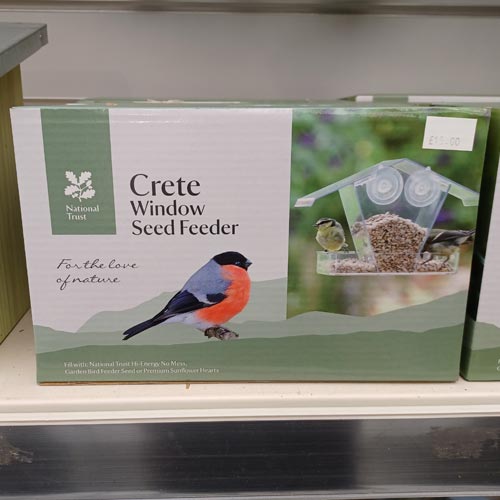
I visited a National Trust garden centre and gift shop this week in Morden. The garden centre has relatively recently undergone some changes with it now being managed by the National Trust I believe. Previously it was run by a third party company.
The National Trust has a number of retail outlets across its estate and has a thriving licensing programme. This was reflected in the gift shop with plenty of National Trust product on show including some licensed lines. The National Trust also sources its own products directly to sell within its retail operations. As an aside I suspect it is very happy to support its licensees in the shops, but would want those licensees to build distribution beyond the National Trust shops. Some licensees can make the mistake that by working with a heritage partner that has its own stores, they are guaranteed a retail route to market.
What I found particularly interesting within this National Trust shop was the fact that it was stocking products from other heritage brands which on face value might be regarded as competitors. This was a bit of hint to me that maybe traditional retail rules are being torn up and retail buyers are approaching buying with a fresh outlook, trying to build a product offering that has the best chance of selling through. I think in other retail scenarios we are seeing more cooperation between retail brands. Challenging times require new tactics.
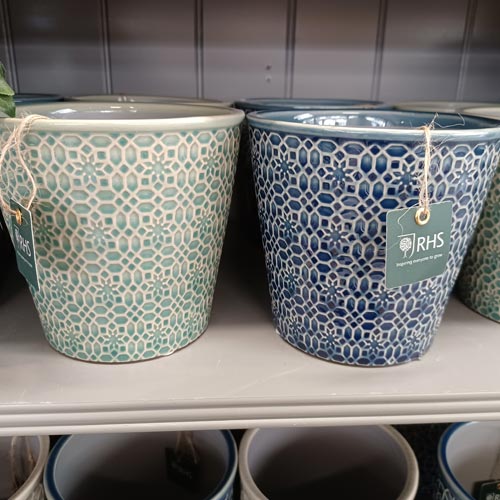
A good example of this at the National Trust shop was the fact it was selling a range of RHS ceramic pot holders.
Within the book offer it had a number of puzzle books featuring other brands including GCHQ and The Ordnance Survey. Quiz and puzzle books seem to be a buoyant category at present as there was a broad range on offer which also included titles such as The Archers Quiz Book.
Another example of the National Trust stocking other heritage brands was found in the calendar range. One of the featured calendars was a Railway Poster Art calendar developed under licence from the National Railway Museum.
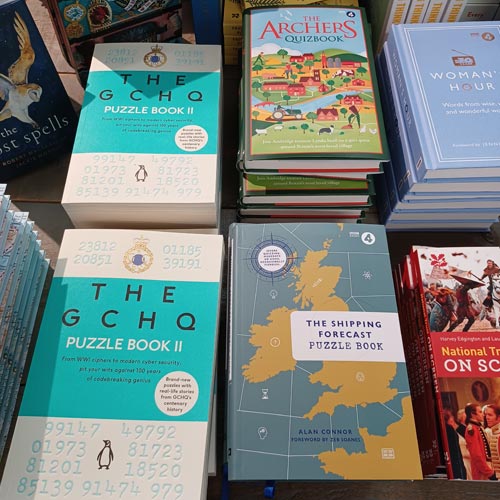
The National Trust shop also tapped into personality licensing. It had made a feature area focused on chef Heston Blumenthal’s Everdure outdoor cooking range. The range was well displayed with strong visuals to support it featuring Heston. These are high ticket price items with prices around £800 so represent a big investment for consumers.
In this context a credible personality helps build consumer confidence. From the retailer’s point of view it is a big investment in terms of space in-store, but I am guessing it was in part persuaded by Heston’s commitment to the range and see this as a long-term product offer for them.
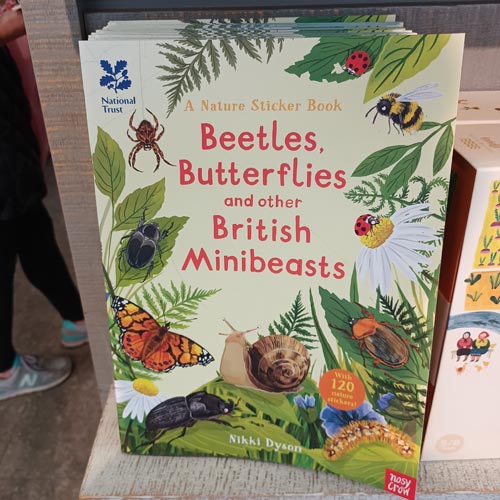
It is encouraging to see a retailer like the National Trust using other brands to create and complete its retail offer. That said, it is of course backing its own brand and opening up its distribution to some of its licensees. On the publishing side, it has a range of children’s activity books developed by Nosy Crow. These include a range of Nature Sticker Books. These work well in the context of the National Trust’s own outlets, but I am sure hold wider appeal within the book trade and to other heritage sites.
The National Trust also seems very good at tapping into specific categories using its knowledge of its customers’ and members’ lifestyles well. A good example of this is a range of bird feeders which I believe have been developed under licence. Organisations like the National Trust are well placed to understand what their customers might want as they have a direct relationship with a lot of them. Further to this they can integrate licensing into wider campaign themes and messaging – the bird feeders carry For The Love of Nature messaging which I believe ties into a wider campaign within the National Trust.
It was also interesting and encouraging to see direct marketing company Danbury Mint (part of MBI) advertising in the national press this week. I spotted two off the page offers both promoting products developed with high-end plush company Steiff. One was for Peter Rabbit and the other for Rupert Bear.
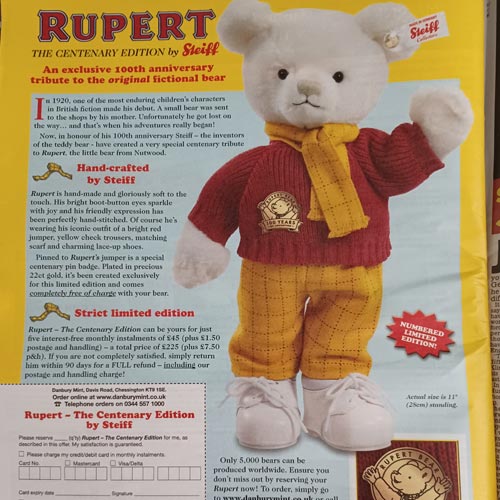
Often Danbury Mint takes advantage of short-term offers from newspapers which have space to fill. The Peter Rabbit advert was in The Times not a paper that I associate with offers like this one, but it probably came about as The Times had space to fill and MBI had an advert ready to go.
This kind of offer brings on board new customers and helps MBI top up its databases. MBI is an expert in developing targeted offers for the customers. Rather like the National Trust, it has a good knowledge of what its customers like and want. Using licensed brands like Peter Rabbit coupled with a heritage brand like Steiff creates a compelling offer.
Direct marketing is a route to market that I think licensing has more scope to shine in and could help fill some gaps that have been lost from the high street distribution. It is also still a very visible form of retailing.
Ian Downes runs Start Licensing, an independent brand licensing agency. His Twitter handle is @startlicensing – he would welcome your suggestions for what to look out for.





























